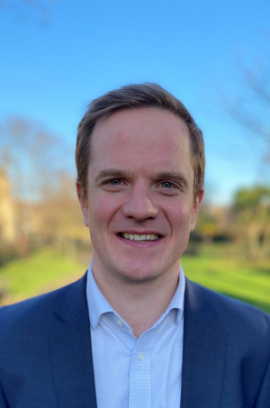 A clinical trial which aims to determine whether patients with a previous diagnosis of dilated cardiomyopathy (DCM) that is now in complete remission can have the number of drugs they are given reduced, has been awarded £250,000 by the British Heart Foundation (BHF).
A clinical trial which aims to determine whether patients with a previous diagnosis of dilated cardiomyopathy (DCM) that is now in complete remission can have the number of drugs they are given reduced, has been awarded £250,000 by the British Heart Foundation (BHF).
The study will be led by Dr Brian Halliday, consultant cardiologist at Royal Brompton and Harefield hospitals and clinical senior lecturer at Imperial College. He previously published results from another BHF-funded study which highlighted the need for lifelong medication for patients with dilated cardiomyopathy (DCM). The trial, known as TRED-HF led to changes to guidelines for heart failure management and treatment in Europe and in the USA.
DCM is a disease of the heart muscle which makes the muscle walls become stretched and thin, causing them to weaken. This leads to the heart being unable to contract properly and pump blood to the rest of the body. It is one of the most common causes of heart failure in the UK affecting up to 250,000 people.
One measure of heart function is the left ventricular ejection fraction (EF), which is the percentage of the blood in the main pumping chamber of the heart that is ejected with each beat. Around a half of patients with heart failure have a low EF and this is known as heart failure with reduced ejection fraction (HFrEF).
The current guideline for patients who develop HFrEF due to DCM recommend treatment with a combination of four different types of drugs.
However, it is possible that only some of these medications are required for patients with a previous diagnosis of DCM and HFrEF that has subsequently improved, and the heart failure has gone into remission. The trial will investigate this question further on the back of consistent feedback from patients who ask for less intensive medication strategies, with the aim to improve their quality of life.
The clinical trial, known as TRED-HF 2 aims to determine the safety and feasibility of reducing some of the medications in 50 patients with dilated cardiomyopathy who are in heart failure remission.
If successful, the study has the potential to improve patient care and reduce healthcare costs.
On receiving the award Dr Halliday said:
“I would like to thank the British Heart Foundation for continuing to fund our research looking into patients with dilated cardiomyopathy and heart failure remission.
“The main driver for this work is our patients who want to know which medications are required to keep their heart failure in remission. They want to reduce the number and doses of medications they currently take, to improve their quality of life and confidence. More information is needed to allow us to make better informed decisions with each individual patient and move away from a ‘one size fits all approach’.”
Professor Sanjay Prasad, a cardiology consultant who works closely with Dr Halliday said:
“Dr Halliday is trying a very new way of treating the heart and if successful will helps patients across the world. It is also a great example of teamwork across our hospitals that allows this kind of work to flourish.”
The study is expected to start in the first half of 2023 and will run for 3 years.
To find out more about this research, please contact us.
Read more of our research stories here or sign up to our research newsletter.
